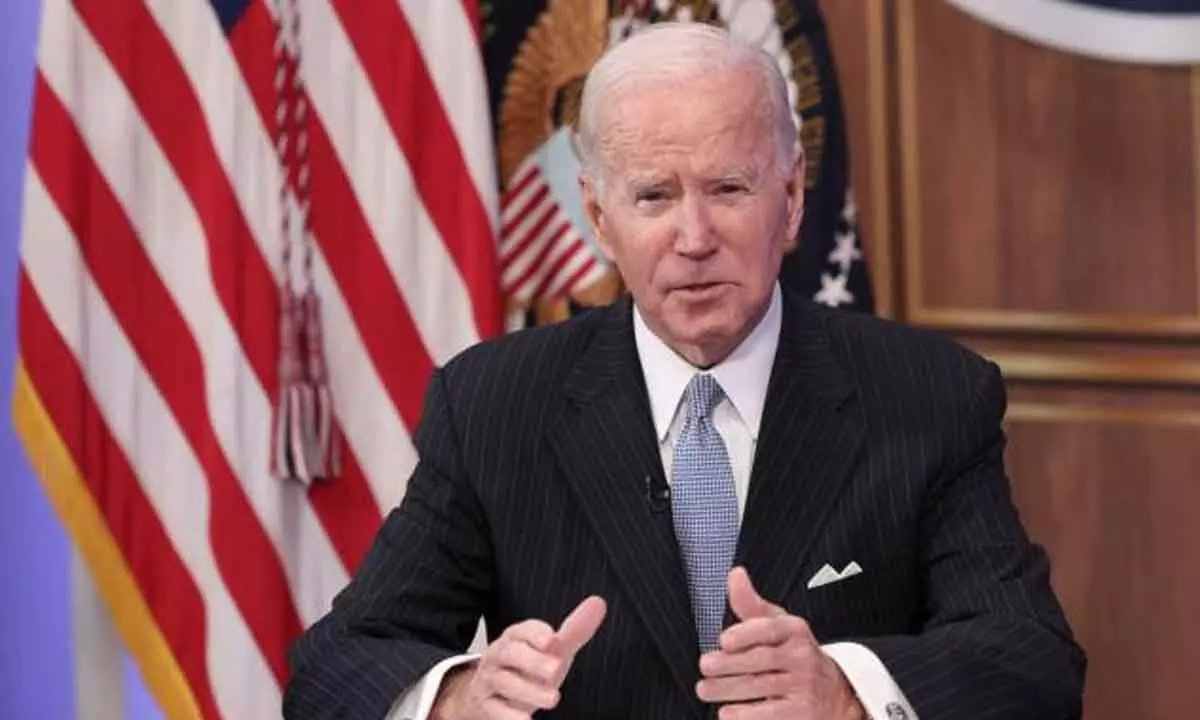Democrats are in race against time in deciding presidential candidate
Share :

US President Joe Biden
Dropping out of the presidential race, President Joe Biden has forced the Democratic party into a race against time on an unchartered course.
New York: Dropping out of the presidential race, President Joe Biden has forced the Democratic party into a race against time on an unchartered course.
Democratic National Committee Chair Jaime Harrison acknowledged in a statement on Sunday that the situation facing the party is “unprecedented” but promised “a transparent and orderly process” to select the candidate to challenge Republican Donald Trump.
Harrison did not explain what the process would be because he would first have to find a consensus – or at least a semblance of one – to keep the party together.
And, he and the other leaders have a tight-rope walk between a coronation of Harris that looks like a fiat from above and what is a transparent democratic nomination process.
The party’s elder statesmen, former presidents Barack Obama and Bill Clinton appear to be divided on the nomination of Vice President Harris, who has been anointed his successor by Biden.
Clinton and his wife, Hillary, have endorsed her, but Obama hasn’t, saying instead: “I have extraordinary confidence that the leaders of our party will be able to create a process from which an outstanding nominee emerges.”
That opens the way for a challenge to Harris.
Another important leader, former Speaker Nancy Pelosi has also not endorsed her.
Clinton, Obama, Harrison, Pelosi, and the Democratic Party's leader in the Senate Chuck Schumer and in the House of Representatives Hakeem Jeffries will influence the election.
Whoever the Democrats choose will have to defeat Trump and the polls show that Harris's standing is not too different from that of Biden -- a statistical tie, about 2 per cent behind the Republican, according to the latest polling averages computed by The Hill.
Biden has swept the party primaries and caucuses winning 3,896 delegates, far more than the 1,976 needed for the nomination, with 36 delegates declaring themselves as uncommitted and seven going to others.
Although he has endorsed Harris, he cannot transfer his delegates to her and they would be free to vote for whom they like.
With the November 5 election only 105 days away, the party faces tight deadlines.
The party’s convention where the party would officially nominate its candidate is barely a month away – from August 19 to 22 in Chicago – and the pick to take on Trump would have to be in place by then if the leadership wants to avoid a chaotic meeting with an open fight for the nomination.
Moreover, with just three and a half months to go before the election, the party can hardly wait till the convention as it will lose almost a month of campaigning.
The party was facing a tighter deadline under Ohio rules which required a party candidate to be in place before August 7 to be on the ballot, but a new legislation extended the deadline to the end of the month.
The party had planned to hold a roll-call vote before the August 7 deadline to confirm the candidate, but even after the extension, there was a push to go ahead with the virtual poll to avoid any legal challenges.
Now the early poll is up in the air, but an early confirmation of a candidate would help the campaign against Trump.
The easiest path for the party would be to go ahead with Harris picked by Biden as his successor – but how to go about it is still a question.
She has rapidly received endorsements from several party officeholders and legislators, but it is not unanimous so far although a challenger hasn’t emerged.
Harris has said that her “intention is to earn and win this nomination” implying that she would prefer not to have a “coronation”, yet it is unclear how she would go about earning the nomination.
She will have to choose a vice president soon, whether she automatically gets the nomination or has to “earn” it.
Time is also a factor here as the candidate would have to be vetted adequately to avoid a debacle the party faced in 1972 when Thomas Eagleton had to drop out as the vice presidential nominee because it was discovered that he had mental health issues.
Harris’s strongest point is that she can automatically access the $240 million in campaign funds that Biden has amassed, which cannot be transferred directly to any other candidate.
She can also turn the age debate on its head, brandishing her 59 years to Trump's 78.
As a woman of Indian and African descent, when could also enthuse minorities and women for a bigger turnout.
As the vice president, she had high national visibility, was apprenticed in the Oval Office, and could take credit for the Biden administration’s achievements.
On the other hand, she is also weighed down by the shortcomings – real and optical – of the Biden-Harris Administration as it is officially called.
Trump said it wouldn’t matter who the Democratic candidate would be as he will be running against the Biden record.
Also, Harris's dismal performance when she tried to run for president could haunt her.
After announcing her candidacy for the Democratic Party nomination in 2015 and launching her campaign, she dropped out of the race even before the first primary.
The fact that she could not garner enough support within the party for even a credible run for nomination raises questions about her claim to party endorsment.














